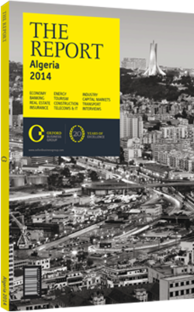OBG talks to Lakhdar Rekhroukh, CEO, Cosider Group

Interview: Lakhdar Rekhroukh
How is the cement shortage affecting Algeria’s construction industry and how can it be addressed?
LAKHDAR REKHROUKH: Algeria has set the goal of increasing cement production in a bid to meet growing local demand for construction materials, reduce the import bill and extend the local value chain. Today, the domestic production of cement is estimated to be at around 18m tonnes per year, which does not fully satisfy local market demand, estimated at 22m tonnes per year.
Structural constraints on material supply lead to increased prices, resulting in lower margins for construction firms. Additionally, the sector has been exposed to shortages during periods of peak demand. In these situations, cement was primarily funnelled to largescale projects. Nonetheless, in the past few years both local and international cement producers such as Lafarge have increased their production capacity, with forecasts indicating that Algeria should be able to meet domestic demand by 2020. In the meantime, the deficit will have to be met through imports.
What is the scope of cooperation between local and foreign construction companies in Algeria?
REKHROUKH: With the implementation of the country’s five-year plan, several public infrastructure development programmes were launched between 2010 and 2014 in a bid to improve connectivity throughout Algeria and develop trade and investment in remote areas. Along with ports and airports, a series of investments have contributed to the development of the road network in Algeria, notably the highways.
In particular, the construction of the East-West Highway, the major 1216-km project connecting Annaba and Tlemcen, represented a technical challenge requiring the expertise of international firms. Local companies have therefore been seeking to take part in Algeria’s major transportation infrastructure project and contribute to the achievement of complex projects by partnering with international companies in a bid to acquire know-how and technology alongside management methods that could help them meet deadlines and better deal with budget constraints.
For example, Cosider undertook several projects of high technological complexity, including the construction of dams, motorway tunnels, road engineering work and large-scale pipelines. We are currently leading a consortium of Algerian companies for the construction of sections of the Hauts Plateaux Highway connecting the cities of Batna and Khenchela. This shows that Algerian companies are capable of carrying out a major project and are increasingly capitalising on technology transfer, particularly in recent years.
Construction started on November 2014 and should be completed within 18 months, when the new five-year plan will be in place. However, due to the complexity of certain sections of the highway, partnerships have been developed with international companies that have the required expertise in this field.
Are there prospects for stronger intra-regional collaboration in the African construction sector?
REKHROUKH: When it comes to the construction sector, African countries are showcasing double-digit growth. Transport infrastructure is developing rapidly with the construction of ports, airports and road networks, and there is an ongoing process of consolidation across Africa with rising investments from Maghreb countries to sub-Saharan Africa.
Algerian construction firms have mainly focused on the domestic market, driven by intensive public investments in infrastructure and social housing programmes. However, more recently they have been looking to develop their activities in Africa. Cosider, for instance, is considering international opportunities, which is why the firm has already submitted proposals for projects in Senegal, Tunisia and, more recently, Niger.
In Africa’s current context, partnering with a local company is the best strategy for market entry, as partnerships foster synergies in terms of knowledge and capacities, enabling parties to build a competitive offer.
You have reached the limit of premium articles you can view for free.
Choose from the options below to purchase print or digital editions of our Reports. You can also purchase a website subscription giving you unlimited access to all of our Reports online for 12 months.
If you have already purchased this Report or have a website subscription, please login to continue.

